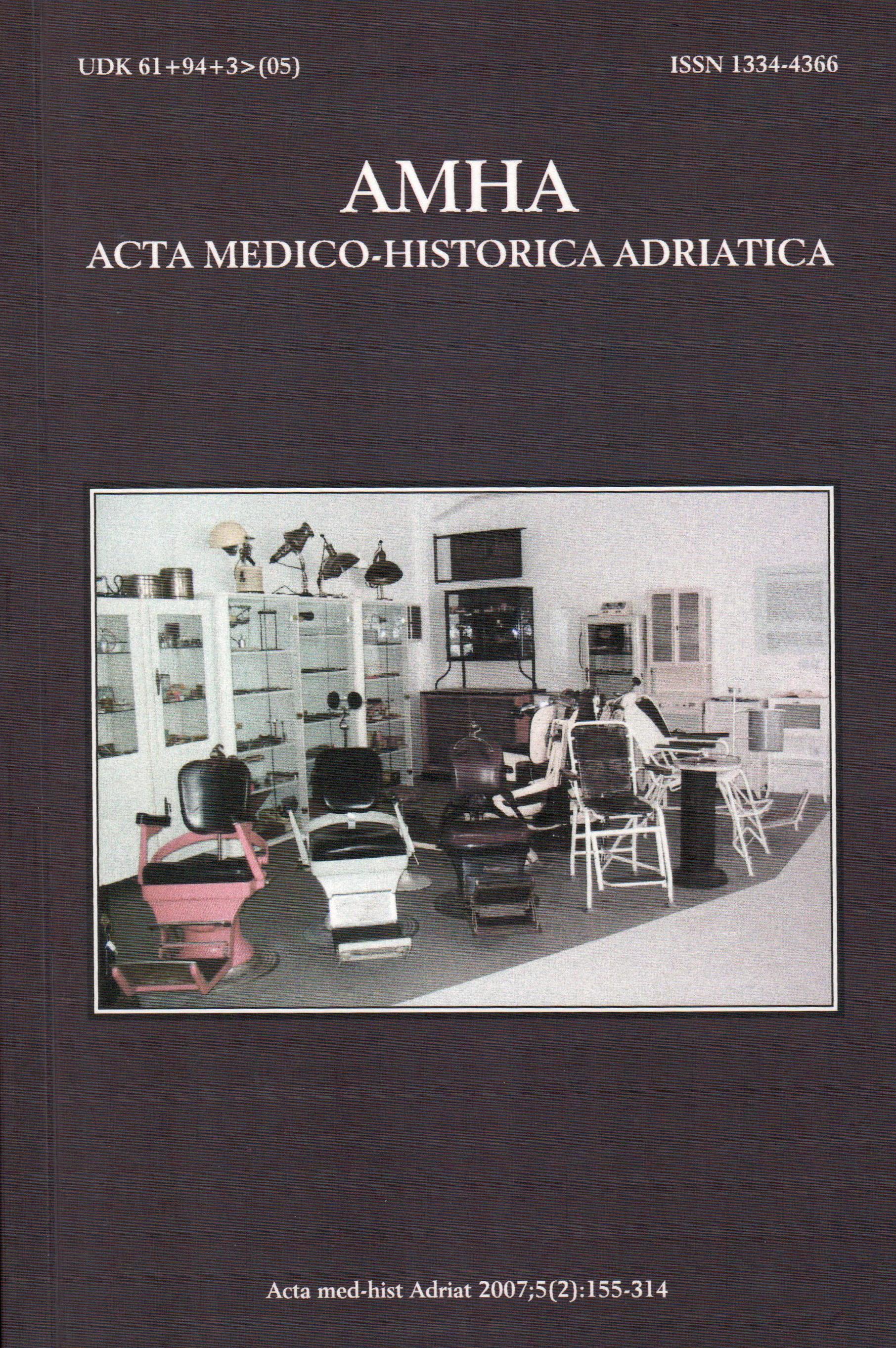O MOZGU TIJEKOM POVIJESTI
Keywords:
History of medicine, brain, neuroscienceAbstract
Humankind has always employed many scientific and less scientific methods in the attempt to define the origin of our existence and the functioning of our body. In this process a lot of energy has been employed to study the brain. From the very beginning, the real role of the brain was not recognized, and the brain was treated in many different wrong ways: as a mystic organ in the Paleolithic and as a useless organ in the Egyptian medicine. This idea of the brain began to change only with the development of the Greek philosophy and Roman medicine. Plato, Hypocrates, Pythagoras and other cerebrocentrists started to describe the brain as the most important human organ. Through many experiments, Galen tried to prove his theories and to define the real role of the brain. Although his results were incorrect because based on animal examples, they were utilized and accepted by the medicine of later periods (until the 17th century). Only with the beginning of Renaissance many scientists and artists resumed brain studies and pointed out the mistakes made by the Galenic medicine. Andreas Vesalius, Leonardo da Vinci, and Thomas Willis
significantly contributed to understanding the brain, its morphology and its functioning. This trend continued in the 18th and 19th century when the human body started to be accepted as a machine, moved mainly by the principles of physics and mathematics. These discoveries played the main role in the later development of brain science which continued in the 20th and 21st century.


